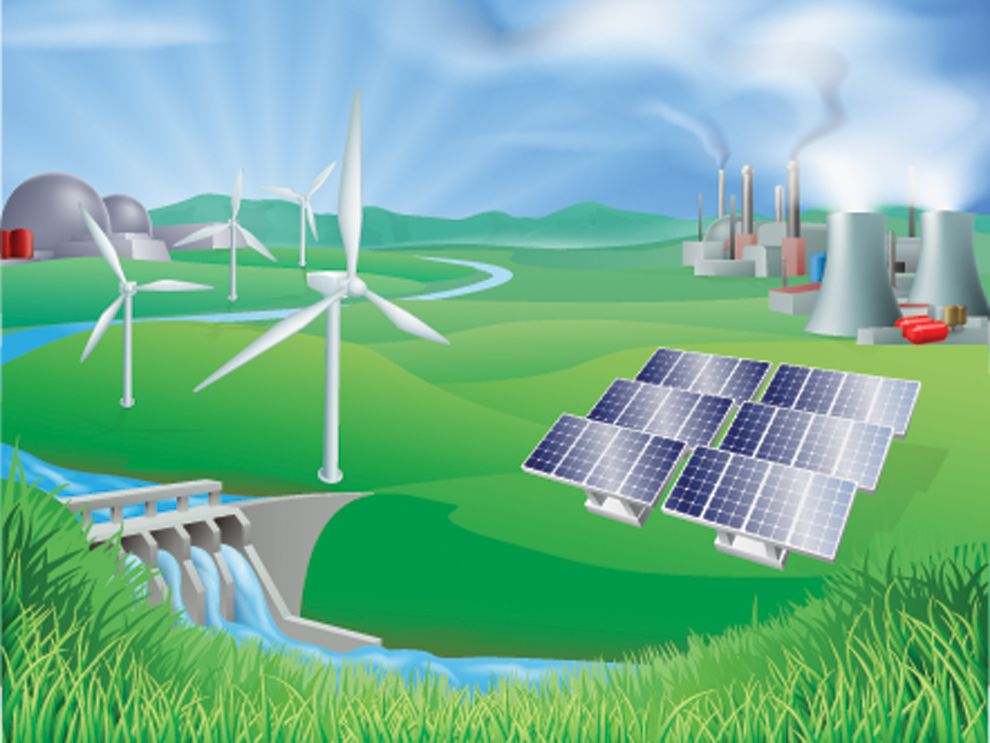The heartbeat of a nation is its economy. No matter whatever you say about it, we must be aware of the fact that all the dreams, goals, and ambitions require money. For fifty years we have been talking about two important environment centric pressing issues, i.e. reducing pollution and saving the environment. It has always seemed like a herculean task – to convince nations to adapt to renewable energy.
To address such pertinent issues, doctoral candidate Hemachandra Padhan and his team at IIT Madras have performed an extensive study to see if there is any correlation between renewable energy, globalization(s), oil prices, per capita carbon emissions, and per capita income or GDP. After studying data of almost 50 years, of 30 OECD (Organization of Economic Cooperation and Development) countries, they have come to the conclusion that there is a long-run association between renewable energy consumption with globalization(s), per capita GDP, oil prices, and per capita carbon emissions.
For this study, the scientists have utilized three globalization indexes – classic, reconstructed economy, and revisited economy. This is the first time that all three globalization indexes have been used to study such a phenomenon. Another method the scientists have used to reduce the amount of errors in the study is by utilizing the Machado and Silva Panel quantile regression (2019) method, to obtain robust findings for the renewable energy consumption – globalization nexus.This method takes into account almost all factors relating to this study.
Overall, more positive resuts were seen with increase in renewable energy consumption and globalization(s).The classic globalization index showed a positive correlation between per capita income and increased renewable energy consumption. Reconstructed and revisited economic globalization indexes showed reduced consumption of renewable energy.
Similar results were seen for quantile regression studies. Extreme quantile regression had an adverse effect on renewable energy consumption, such as more use of coal and wood in the lower quantile, and more use of energy in the higher quantile because of higher income. Despite all the facts, it is certain that in the long run, the relation between renewable energy consumption and globalization(s) will help in overall development and reduction in the dependency on fossil fuels and lesser carbon emissions.

In order to encourage OECD nations to use more renewable energy, policymakers should give more costeffective ways to implement renewable energy. They should enforce growth-oriented policies to make sure emissions come down. With increase in income, people should be encouraged to use more environment friendly ways to utilize energy. The government of OECD nations should offer subsidies to renewable energy companies. Better economies, leading to higher incomes, will encourage countries to view renewable energy consumption more positively.

Hemachandra Padhan
Professor Giray Gozgor, Faculty of Political Sciences at Istanbul Medeniyet University, Turkey comments; “Mr. Hemachandra Padhan has used my data set of reconstructed economic globalization and examines the impact of robust economic globalization on renewable energy consumption in the OECD economies. He found that there are positive effects for per capita income, the real price of oil and carbon emissions per capita on the renewable energy consumption. Besides, a higher level of (overall, economics, social and political) classic globalization promotes renewable energy consumption. In contrast, the “reconstructed” and “revisited” economic globalization reduces the use of renewable energy consumption.

Moreover, he also found that renewable energy consumption increases the domestic economy in the middle (0.50) quantile group of the population through importing more advanced technology and positive spilling over markets, while the lower quantile group and the higher quantile group of the population are using non-renewable (coal, wood) energy because of the livelihood practice that is based on coal and wood (for the lower quantiles group of the population) and for the sake of speedy growth (for the higher quantiles group of the population) that worsens the environmental quality
without caring for the contents of globalization.
As per my reader, based on the results of the study, he has derived innovative policy implications for OECD economies that are practically relevant.”
Article by Akshay Anantharaman









